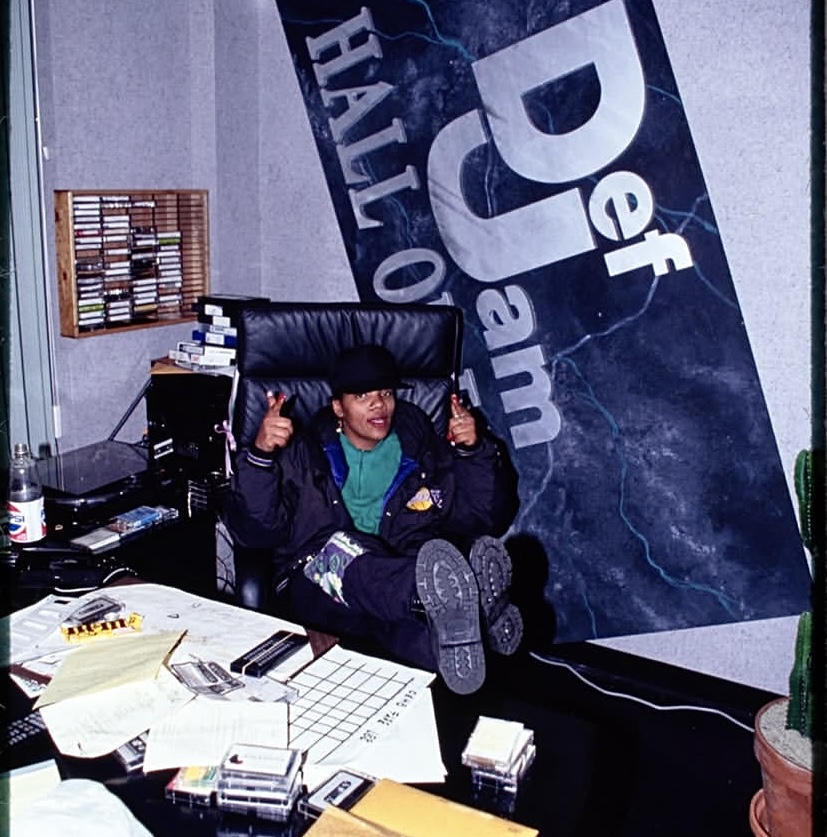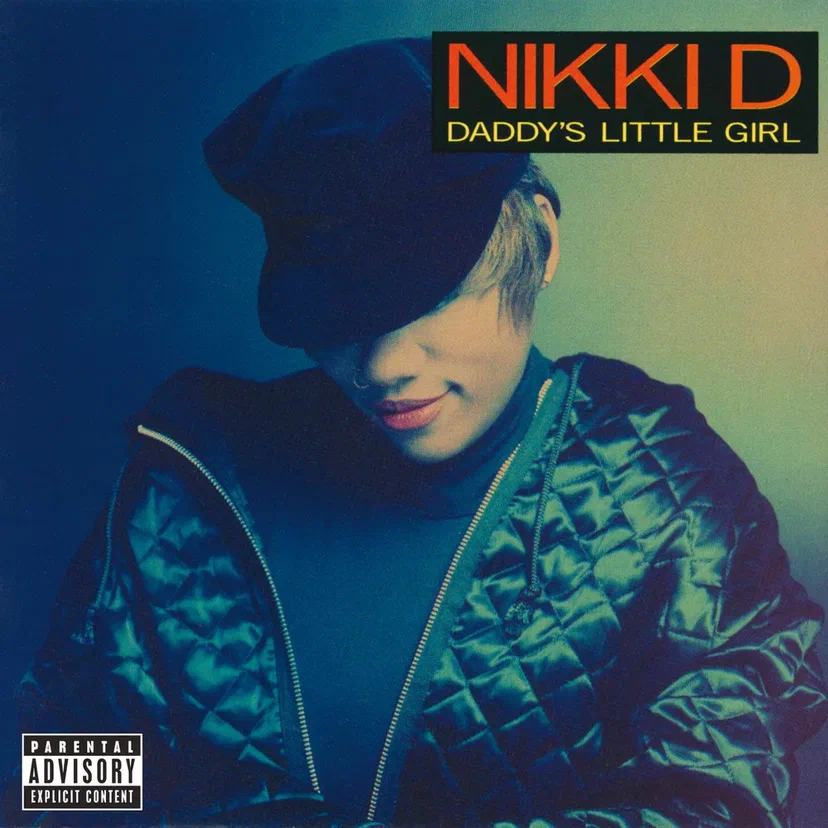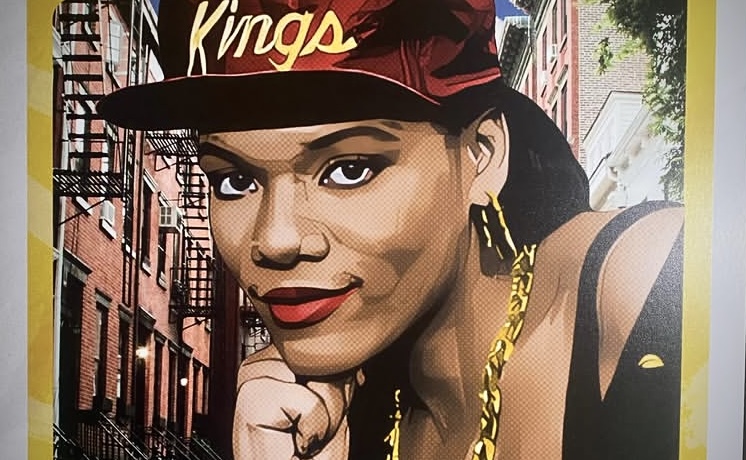Depending on the era you grew up in, there are several contenders for the title of “First Lady of Hip-Hop” — some swear by Roxanne Shanté, Queen Latifah, or Da Brat, while others back Lil’ Kim and Missy Elliott.
While all of these women have undoubtedly left their undeniable mark on the culture, it’s simply impossible to bestow the top title on just one. However, there are certain indisputable truths when it comes to female empowerment in the culture — particularly, who was the first woman signed to Def Jam, and that’s Nikki D.
Long before she became “Nikki D,” Nichelle Strong was living in New York, where she was born in 1968, before moving with her family to Los Angeles. Although she absorbed hip-hop — especially tracks by Kool Moe Dee, LL Cool J, and Beastie Boys — from an early age, it was surprising that this music and culture had not yet fully made the 3,000-mile pilgrimage west.
“I was like, why aren’t they playing this?” she jokes.
Fate intervened in the form of West Coast icon Ice-T, who helped bring the New York-born art form to Los Angeles.
“He instantly became like a big brother to me, and we just vibed because we had a mutual friend,” she says. “He had friends that I got cool with, and then we all just started hanging out. We were always over at his DJ’s house where he used to rehearse, since at the time he was an independent artist on his own label, Rhyme Syndicate.”
As Nikki D and Ice-T often found themselves in the same circles, he eventually heard her rap — something she, at the time, thought was as ridiculous as a parrot trying to sing opera. But Ice-T saw real potential in her skills.
“He was like, ‘Why don’t you write something of your own?’” she recalls. “I was like, Nahhh, I’m not a rapper. He goes, ‘No, you are a rapper.’ I just fell in love with it the moment Ice-T said, ‘You’re a rapper.’”

Nikki D made it a point to attend every rap show that happened in L.A. She remembers watching performances by artists like Whodini, Dana Dane, and Doug E. Fresh.
“I eventually wrote rhymes for Doug E. Fresh, and he said, ‘Oh my God, you’re tough!’” she says. “That’s when I fully dived in.”
Nikki D took pride in writing her own lyrics — something she says was rare not only among male artists at the time but even more so among women.
“Writing was everything to me. A lot of people had others write their rhymes for them, but you didn’t always know because they matched the delivery so well, it felt like it was theirs,” she says. “If you want someone else to write your songs — fine. But the performance and bravado don’t hit the same if you’re not really that person.”
Eventually, Nichelle Strong became Nikki D, adding a “D” to her name in homage to legends like Heavy D and Chuck D.
Though L.A. played a key role in her development as an MC, she knew her big break would happen in New York.
During the early days of Def Jam, Rick Rubin signed major names like LL Cool J and the Beastie Boys. Nikki D met Russell Simmons and earned the honor of becoming the first woman signed to the legendary label in 1989.
The following year, she released her debut single “Lettering’ Off Steam,” produced by Sam Sever. The video featured Flavor Flav. In 1991, Nikki D released her more commercially successful track, “Daddy’s Little Girl,” which appeared on the soundtrack to the film Just Another Girl and hit No. 1 on the Billboard Hot Rap Singles chart.
“At the time, we were on tour with Yo-Yo and West Johnson, who worked in radio, and he called and said, ‘Baby girl, your song is number one,’” she recalls. “I was like, No way, get outta here! But the track stayed on the charts for weeks. And I thought, Wow, this is cool!”
Nikki D seemed poised to become the next big star, but she admits Simmons’ excitement over her as an artist ended up working against her.
“Russell admitted it,” she says. “He said, ‘I was so damn excited that I dropped the single without even thinking about it.’” Meanwhile, Lyor Cohen insisted, “Don’t release the single unless the album is ready.”
The single dropped in February, while the Daddy’s Little Girl album came out six months later, on September 3, 1991. The production roster was stacked: S.I.D. Reynolds, Leaders of the New School, The Epitome of Scratch, Eric “Vietnam” Sadler, Large Professor, Smooth Ice, Prince Paul, and Sam Sever.
“At that time, the industry was still figuring out what to do with female rappers. You had one shot when you put out a record — there might not be a second.”
The album reached No. 54 on the Billboard Top R&B/Hip-Hop Albums chart — far from what Def Jam had hoped. Her music career didn’t progress further, and that remains her only album.

While Nikki D doesn’t dwell on missed opportunities, she acknowledges that the so-called “boys’ club” offers men more freedom to continue their careers even after a poorly performing album. She wasn’t given a chance to grow as an artist — especially while honing her voice that seamlessly blended MCing and sexuality, something that now tops charts.
“I felt like male artists did that all the time — why couldn’t I?” she says. “They’re out here talking nonsense about what they do with some chick. Well, I’m gonna talk about what I do with a guy.”
Nikki D went on to work with Flavor Unit (Apache and Queen Latifah), and collaborated with Moby, Redman, EPMD, Naughty By Nature, Rah Digga, Heather B., and Bahamadia. She eventually returned to Def Jam in an executive role. As she suspected, she discovered many artists in the industry were actually using ghostwriters.
“I like to say I was just a little ahead of my time,” she says.


